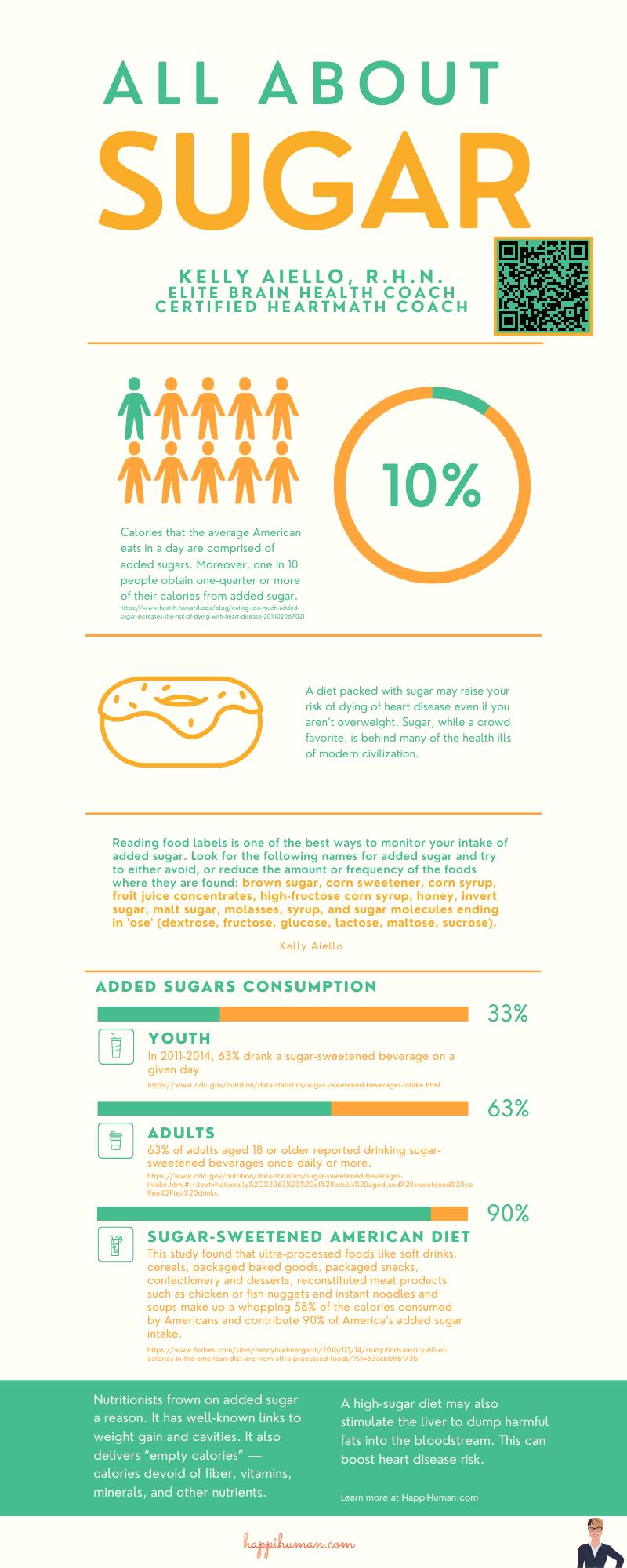Are All Sugars Created Equal? Natural Sugars vs. Sugar Additives
By now, most people are aware that not all calories are created equal. A calorie from a baked potato will have a different effect on the body than one from a whole egg.
But what about sugar? Are all sugars created equal? Is the sugar we get from an apple the same as the sugar added to apple juice?
Sugar is a ubiquitous part of our diet, found in many foods and drinks we consume daily. However, as you may have guessed, not all sugars are the same. Understanding their differences is essential to make informed choices about what we eat and drink.
So, let’s break it down by comparing natural sugars and sugar additives.
Natural Sugars
Natural sugars are also known as intrinsic sugars. They are the naturally occurring sugars found in whole foods like fruits, dairy products, and starchy vegetables, as well as minimally processed foods like whole grain pasta, brown rice, cheese, and yogurt. Mother Nature typically bundles intrinsic sugars with other nutrients like fibre or protein that slow how quickly the sugars are digested.
When these natural sugars are absorbed more slowly, it will prevent a rapid blood sugar spike and subsequent drop that can commonly lead to weight gain, diabetes, or insulin resistance.
Many whole foods that contain natural sugars are also loaded with vitamins, minerals, and essential nutrients that our bodies and brains need to function properly, making them the smartest choice.
Sugar Additives
Sugar additives, on the other hand, are sugars added to foods by manufacturers during processing. You can find these types of sugars in various processed foods and drinks, like cakes, candies, cookies, and soda. So it’s essential to read ingredient labels carefully when making food choices.
It is tricky because sugar additives go by many different names. In fact, there are over 61 different names for sugar. Some are familiar, like high-fructose corn syrup, while others, like mannose, are not. Other added sugars include malt syrup, cane sugar, brown sugar, honey, sucrose, dextrose, and agave nectar. These and other added sugars provide little to no nutritional value, and their excessive consumption can lead to health issues.
Moreover, sugar additives are often added to ultra-processed foods and drinks, which can have additional adverse health effects, including weight gain and an increased risk of chronic disease.
You may also like
I waited six months to reach out to Kelly before I finally decided to take a risk and invest in her Jumpstart program. I didn't expect that she would have so much insight into emotional wellbeing, nor did I expect her practical advice to make such a positive difference so quickly. I gained everything I'd hoped, and more, from my three months of working with her.
Paige W. British Columbia
Why Choose Me?
I never met a person that didn’t have some resistance to change. I take the time to get to know my clients fully, find their internal motivation and set them up for long-term success that’s personalized.
Which Sugars Are Best?
Ultimately, the body similarly processes all sugars, regardless of where they come from. That’s because natural sugars and added sugars both have similar chemical structures.
But the main differences lie in what those sugars are paired with.
The natural sugars that occur in fruits and vegetables contain fibre and other healthy nutrients that slow the sugar’s absorption. But even still, there typically isn’t a lot of natural sugar present in whole foods. An apple, for example, has only about 19 grams of sugar combined with 3 grams of fibre and various vitamins and compounds that may help protect against disease.
It’s important to note, however, that consuming fruit juice is not the same as eating the whole fruit. Fruit juice contains much more sugar in concentrated form than a single serving of fruit and often lacks the natural fibres contained in the entire fruit.
On the other hand, a 20-oz bottle of regular soda can contain 69 grams of sugar but no fibre or nutritional benefits.
So, when consuming whole fruits and vegetables, their natural sugars are usually balanced with other beneficial nutrients. This makes them a healthier choice for maintaining a balanced diet and supporting proper neuronutrition.
While natural sugars in whole foods are generally considered healthier than sugar additives in ultra-processed foods, consuming them in moderation is still essential. When we overindulge in sugar, regardless of its source, our bodies cannot differentiate if we have had a glass of grape juice or a bag of grape jelly beans.
Consuming no more than 10% of your daily calories from added sugar is recommended (from a nutritionist’s standpoint, even this is too much!). Otherwise, too much sugar from natural sources or sugar additives can lead to weight gain and an increased risk of chronic diseases like type 2 diabetes, tooth decay, obesity, and heart disease.
Excessive sugar intake can also contribute to inflammation in the body, which scientists have linked to assorted health problems. Numerous studies have demonstrated that high insulin levels, known as “hyperinsulinemia,” significantly increase the likelihood of developing Alzheimer’s. Moreover, medical experts believe that individuals with type 1 diabetes, who do not produce insulin, also have an increased risk of developing Alzheimer’s.
Bottom Line
Not all sugars are created equal, and the types of sugars we consume can significantly impact our health.
While natural sugars in fruits, vegetables, and dairy products provide essential nutrients and energy for our bodies, sugar additives in processed foods can lead to adverse health effects. It’s necessary to be mindful of the types of sugar we consume and strive to get most of our sugar intake from whole foods whenever possible.
Limiting our consumption of added sugars is one of the most significant steps toward achieving and maintaining optimal health that we can make.
In conclusion, it is necessary to choose a variety of life-affirming whole, nutrient-dense foods, such as vegetables, fruits, whole grains, lean proteins, and healthy fats, to maintain a healthy lifestyle. So, reach for the natural sugars found in whole foods over sugar additives whenever possible.
Need more help?
If you struggle with a sugar addiction or can’t seem to drop added sugars from your diet, consider reaching out for support. You don’t have to go it alone!
I have helped many people get off the sugar roller coaster and shake their sugar addiction for good. If you need support doing the same, please know there is hope! Contact me at kelly@HappiHuman.com to get started today!
[Medical Disclaimer]
Please consult with your doctor(s) before starting any new mental or physical health improvement program. The advice I offer is not intended to replace that of your medical practitioner. I am not a medical professional, nor am I qualified to diagnose, cure treat, or prevent disease. The advice I provide on this website is intended for a broad and diverse audience, and as such, deals with general lifestyle concepts, not specific healthcare advice. This material disclaims any liability or loss in connection with the advice expressed herein.















